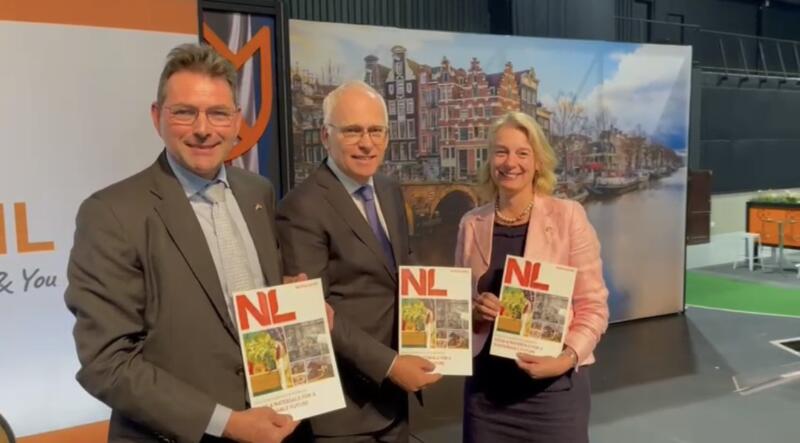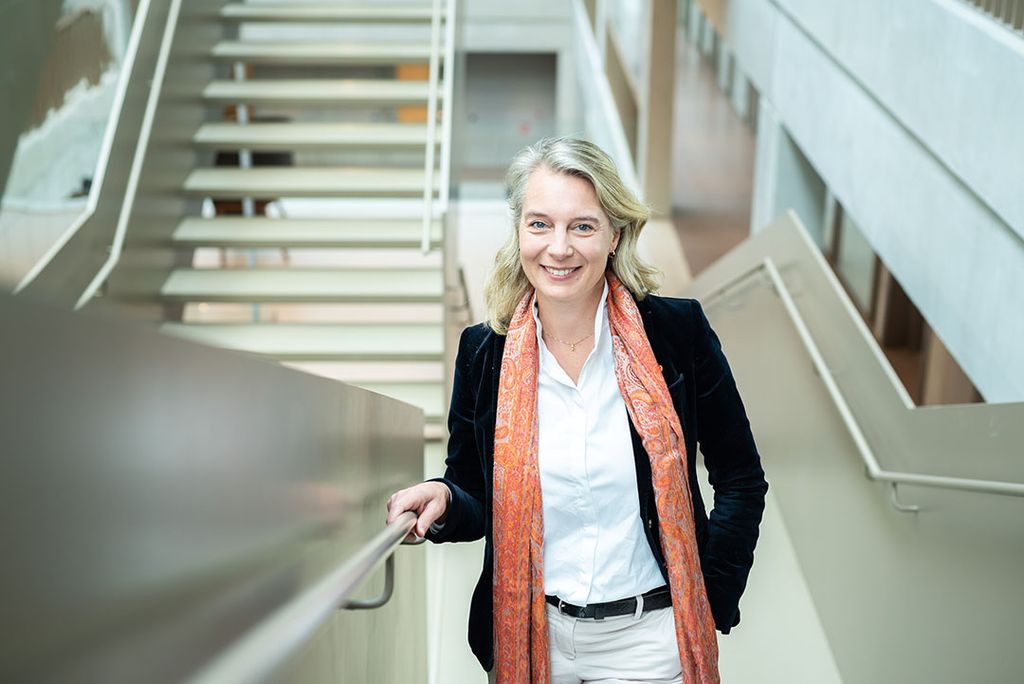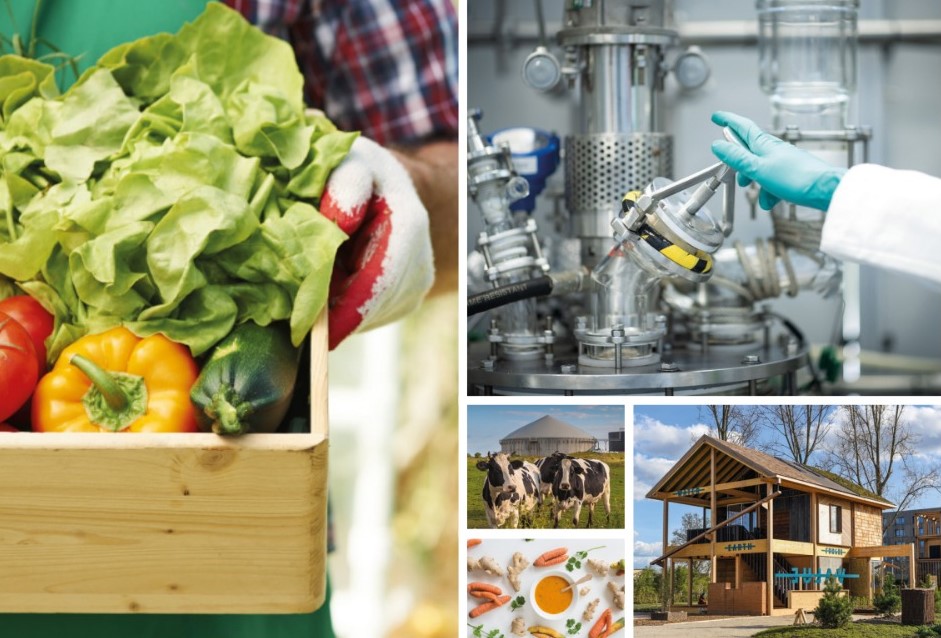New publication: ‘Circular agrifood & biomass – Food & materials for a sustainable future’
October 18, 2023
On Wednesday, October 18th 2023, the new publication ‘Circular agrifood & biomass: Food and materials for a sustainable future’ was launched. Jolijn Zwart-van Kessel (Foodvalley NL) and Freek van Eijk (Holland Circular Hotspot) handed the publication to Piet Adema, Minister of Agriculture, Nature and Food Quality, during the economic mission on green hydrogen, circular waste treatment and future-oriented agriculture and horticulture in South-Africa.
It is now available to download digitally: ‘Circular agrifood & biomass: food_&_materials_for_a_sustainable_future.’

''Many innovative partners of Foodvalley NL are actively involved and draw on our various initiatives in their day-to-day practices. For example, working together in the Foodvalley NL Upcycling Community to upcycle waste streams to consumers. Together we can develop and implement more and better circular solutions worldwide''
Jolijn Zwart-van Kessel, Foodvalley NL
Upcycling and biomass in the circular economy
The publication results from a collaborative effort between Netherlands Enterprise Agency taking the lead, Holland Circular Hotspot, Foodvalley NL, Topsector Agri & Food, the Ministry of Agriculture, Nature and Food Quality, commissioned by the Ministry of Infrastructure and Water Management and the Ministry of Foreign Affairs.
The brochure gives an insight into various current circular best practices and a glimpse into future entrepreneurial opportunities. It also presents lessons learned from collaborating governments, knowledge institutions and businesses active in the field of Dutch agrifood production to valorise its residual streams that can add value worldwide.
This publication provides an overview of:
- reuse within the cultivation system;
- value creation within the food chain through upcycling (a form of recycling in which the product has the same or even better quality after processing);
- substitution; and
- biomass applications outside the agrifood sector.

Implementing circular economy measures becomes increasingly important due to climate change, a growing world population, rising prosperity and the finite nature of certain raw materials. Thereby, biomass becomes increasingly essential in the circular economy. In addition to food and feed, biomass provides renewable raw materials that can help replace primary raw materials in other sectors.
Innovation through government, research & business collaboration plays a crucial role.
Innovation and cooperation are at the heart of Dutch food production, helping the Netherlands produce high-quality products, knowledge, and technology worldwide. Innovation for good is the newest chapter of the Dutch way of moving forward towards shaping the future of food. Our international position in the agrifood market means we could add knowledge, practical experience and leadership and play a role of significance in the transition of the global food system towards circular and sustainable agriculture. An approach that shifts from volume to value and collaboration in and between value chains.
Upcycling technologies, collaboration and biomass are essential parts of circular economy.
This publication takes the reader through ways of reuse within the cultivation system, valorisation within the food chain by upcycling, substitution, and biomass applications outside the agrifood sector.
Ecological and environmental issues are growing more urgent by the day. The importance of introducing circular economic principles increases exponentially due to climate change, the growing global population, prosperity, and the finiteness of certain raw materials. Biomass is and has become an increasingly essential part of the circular economy. Besides food and animal feed, it also provides renewable resources that may contribute to the far-reaching replacement of primary resources in other sectors.
Act on dilemmas to meet expected demand in 2050
The global demand for biomass will increase enormously towards 2050. Whether or not the supply of sustainably produced biomass can grow at the same rate as the demand remains to be seen. For the future, when looking at the upcycling of agrifood sidestreams and the production of biomass broadly, an ecologically sustainable production and consumption system that handles its resources is essential. As raw materials and biomass might become geographically limited, interests and needed investments are high, and dilemmas will appear. On what raw material to source for, what cascading purpose and ecosystem shifts are complex and politically sensitive. The publication acts as a toolbox and source of inspiration for practitioners to find a new balance in this transition.
''If there is one sector truly international it is the sector of Agrifood. We globally see increasing competition between food, feed and biomass for materials, chemistry and energy. The publication acts as a toolbox and source of inspiration for practitioners on how to find a new balance in this transition. We aim to inspire and help to accelerate and scale sustainable agrifood & biomass business opportunities in every corner of the planet''
Freek van Eijk, Holland Circular Hotspot's Director
